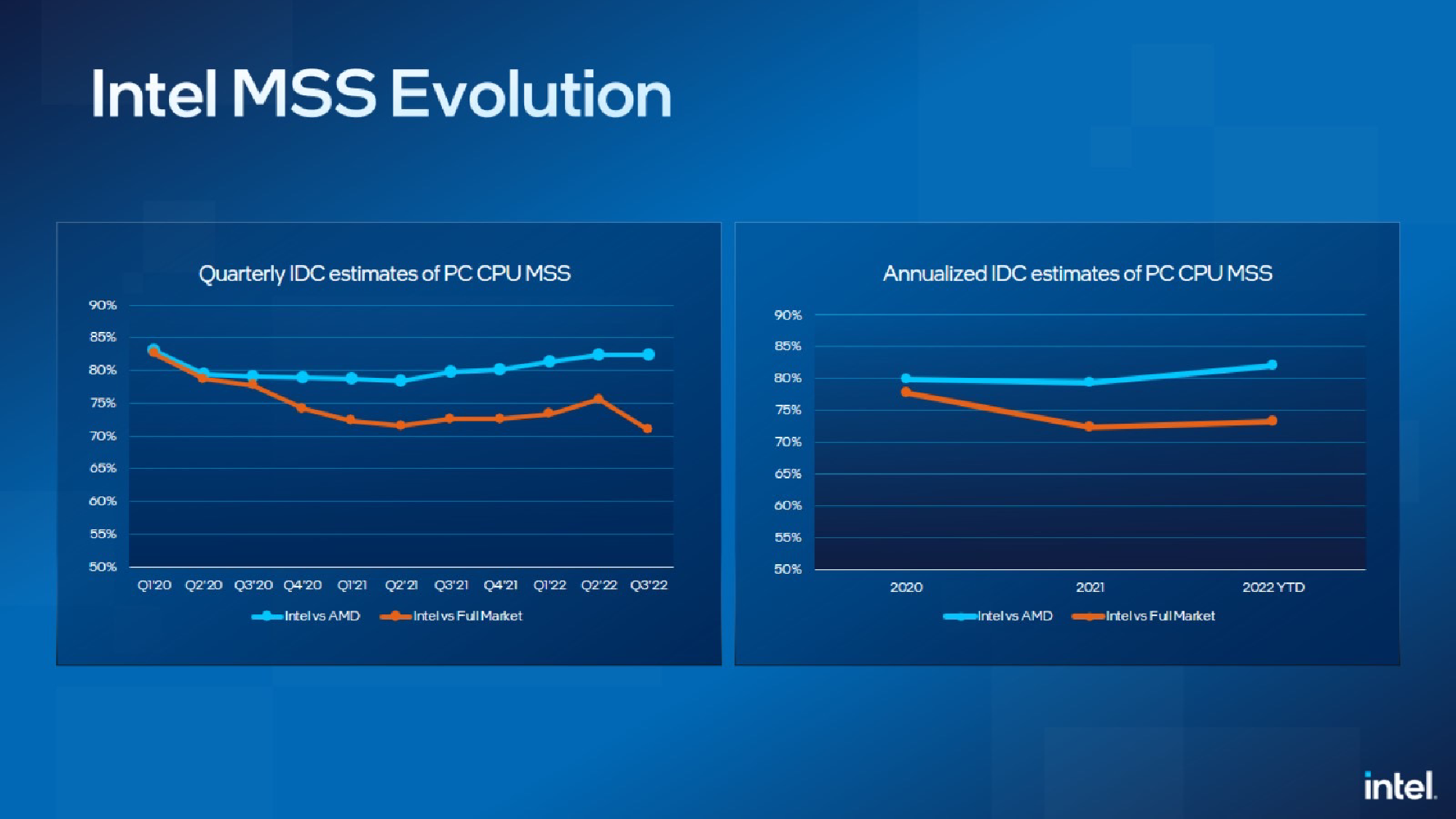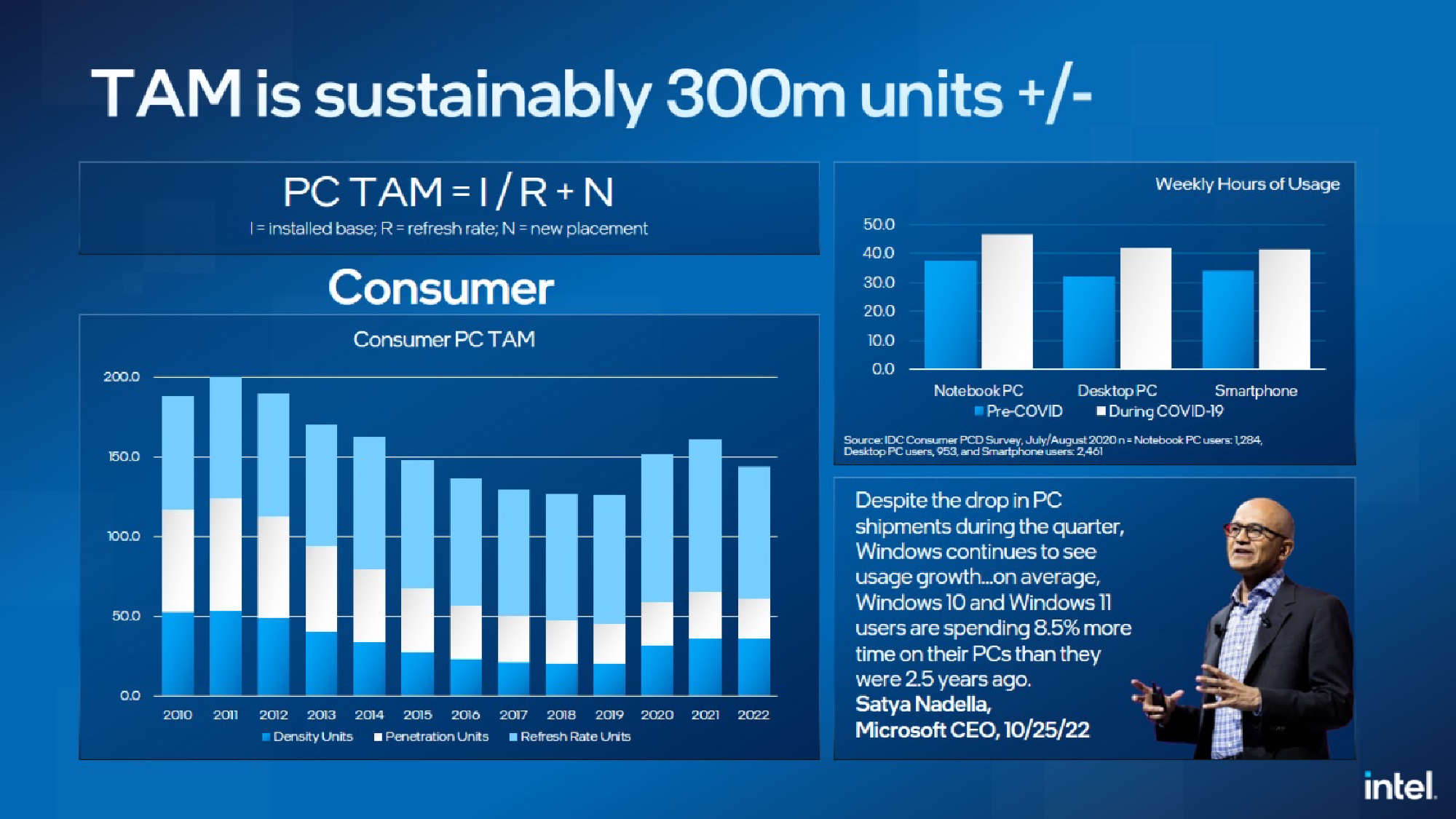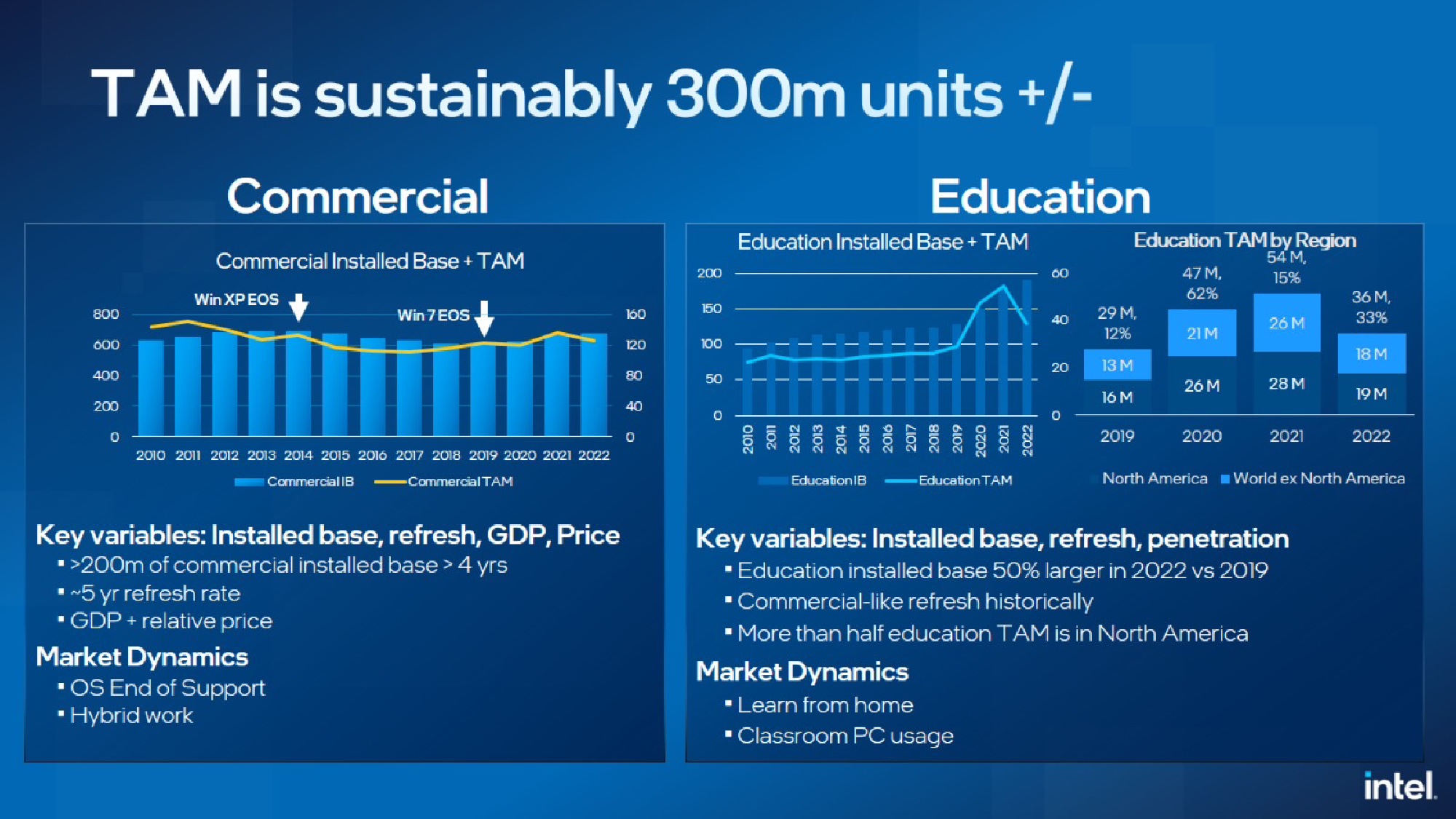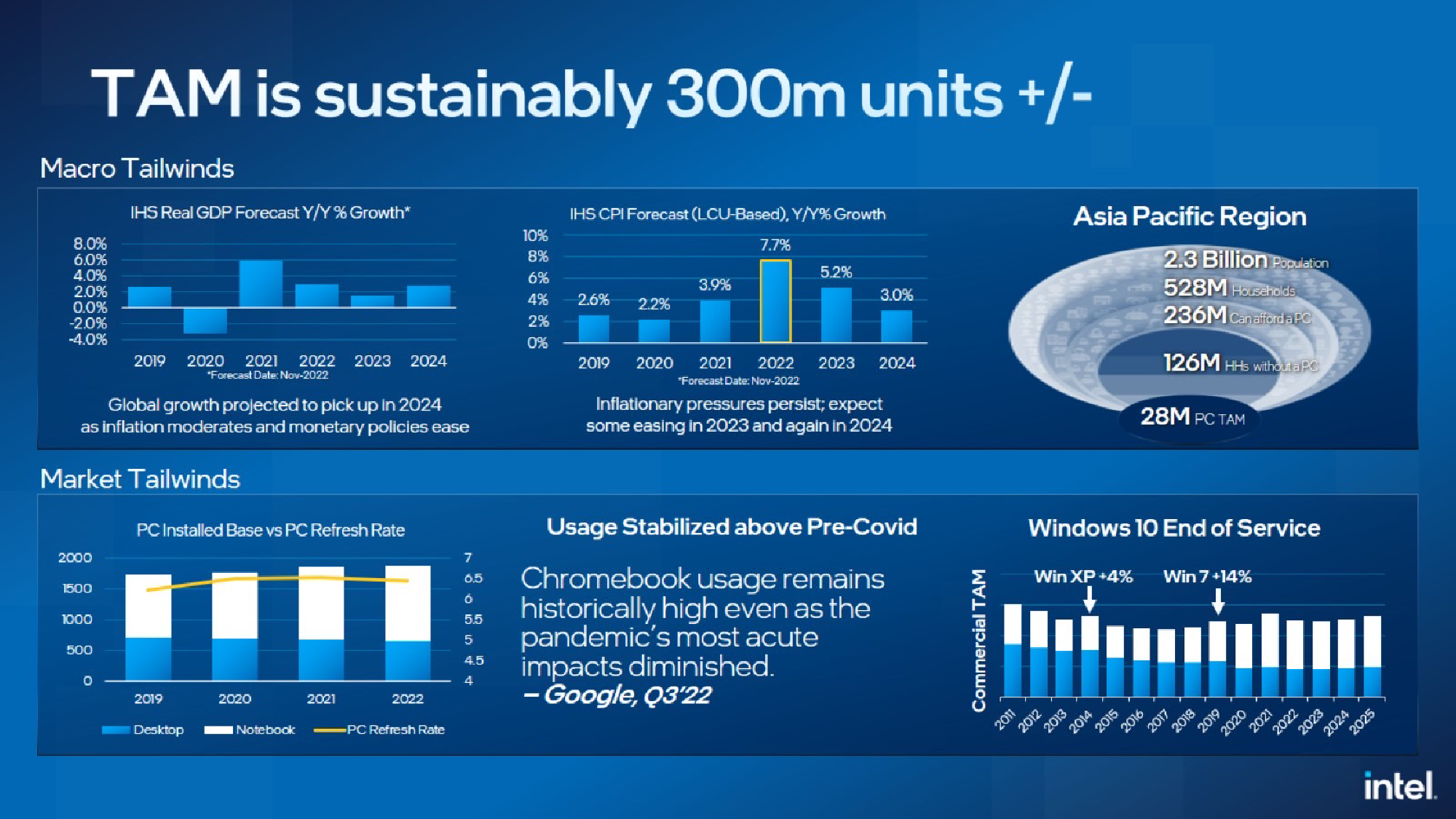Intel Cuts Wages and Suspends Bonuses Following Catastrophic Quarter
Intel slashes wages and bonuses for employees above midlevel rank, including CEO.
Intel on Tuesday said it would cut wages and suspend bonuses for all of its employees above midlevel ranks, including top management, following last week's disastrous financial results. The move affects all managers as well as engineers. The company says that the pay cuts will enable it to lower operating costs and save money for transformation and strategic initiatives.
Base pay for all employees above midlevel ranks will be cut by 5% effective March 1, reports OregonLive. Meanwhile, the base salaries of vice presidents will be reduced by 10%, senior vice presidents will see a 15% cut, whereas chief executive Pat Gelsinger's compensation will be reduced by 25%. It's noteworthy that executive pay tends to have heavy stock-based compensation, so the cuts could be less severe than they appear on the surface. However, Intel's stock has also been punished of late, being roughly half of what it was the year prior.
Hourly employees will not see their wages cut, and their annual bonuses will remain in place. Yet, they are not getting any raises this year. Furthermore, Intel suspended profit-sharing bonuses (which is unsurprising as Intel posted a huge loss), employee recognition programs, and reduced 401(k) retirement plan matching payments to 2.5%, or by half.
"As we continue to navigate macro-economic headwinds and work to reduce costs across the company, we've made several adjustments to our 2023 employee compensation and rewards programs," a statement from Intel to Tom's Hardware reads. "These changes are designed to impact our executive population more significantly and will help support the investments and overall workforce needed to accelerate our transformation and achieve our long-term strategy. We are grateful to our employees for their commitment to Intel and patience during this time, as we know these changes are not easy."
Intel is facing uncertainties for its key client computing and data center business units that together account for around 78% of the company's revenue, which is why it did not make any predictions about its 2023 revenues and profits last week. Meanwhile, the company announced that its earnings in the first quarter would drop to a range between $10.5 billion and $11.5 billion, down from $14 billion in the fourth quarter, an unprecedented drop.
While Intel's client computing group that sells CPUs and chipsets for client PCs is affected by weak demand for new systems, the company remains optimistic about demand for client computers in the second half of the year.
The situation with Intel's data center group is more severe. On the one hand, Intel has a rather competitive 4th Generation Xeon Scalable 'Sapphire Rapids' processor with up to 60 cores, but on the other hand, this CPU launched over a year late, which is why it has to compete against AMD's EPYC 'Genoa' offerings with up to 96 cores that beat it in cases where core counts matter. Datacenter CPUs tend to drive profits for companies, so if Intel has to cut prices of its Sapphire Rapids processors to sell them, its profitability will be severely affected.





But Intel seems to have a different opinion about the future of PC market. The company is confident that the total available market of PCs is about 300 million units a year, and it predicts PC TAM to be in the range between 270 million and 290 million in 2023, Intel disclosed at its recent PC TAM event for analysts and investors. Furthermore, Intel competes against AMD pretty successfully in the PC space (at least based purely on unit share), so perhaps its aggressive actions are aimed not only at AMD, but at Apple, which eats the sales of Intel's customers like Lenovo, HP and Dell.
Get Tom's Hardware's best news and in-depth reviews, straight to your inbox.
But it looks like, for now, AMD suffers more than Apple. While the company is particularly strong with its datacenter-oriented EPYC CPUs, it is relatively weak in the PC market, which is why Bernstein Research cut its per share target for AMD from $95 to $80.

Anton Shilov is a contributing writer at Tom’s Hardware. Over the past couple of decades, he has covered everything from CPUs and GPUs to supercomputers and from modern process technologies and latest fab tools to high-tech industry trends.
-
Fates_Demise Reply
Definitely not over paid considering people with the skills to run companies like that are a rarity.cknobman said:Just shows you how much management and above is over paid.
I've seen first hand how bad management can drive a company right into the ground. -
-Fran- Reply
You mean like Intel is doing right now?Fates_Demise said:Definitely not over paid considering people with the skills to run companies like that are a rarity.
I've seen first hand how bad management can drive a company right into the ground.
Keep in mind Intel was considered, at some point, "too big to fail" and now there's some doubts being cast. They have "ran out of spare change" and have been cutting almost all things that are unnecessary. This is reminiscent to how you throw all things above board when trying to stay afloat and you'd only do that when you know you don't have any more headroom.
I've always considered all (yes, ALL) executive tier people are grossly overrated and overpaid for what they truly contribute in any corporation. Having "good ideas" is not exclusive to them and, if you work in one of the Fortune 100, you will understand why. Managers and Execs take written blame, but the ones ending up on the street are the engineers and other lower level workers that execute failed visions and/or pay the price of the "trust me bro" Exec mentality.
Keep in mind Pat came into Intel making* super big and bold statements, including calling out TSMC and some other "interesting" remarks that have come around to bite him hard. That's the sort of people that is overrated. Not saying Pat is a bad element or should be fired (yet?), but keep in mind that's text book "trust me bro" mentality.
Regards. -
Fates_Demise Reply
Intel cutting programs is not indicative of them running out of money, far from it honestly. These programs they cut have run near zero or even negative profit for years.-Fran- said:You mean like Intel is doing right now?
Keep in mind Intel was considered, at some point, "too big to fail" and now there's some doubts being cast. They have "ran out of spare change" and have been cutting almost all things that are unnecessary. This is reminiscent to how you throw all things above board when trying to stay afloat and you'd only do that when you know you don't have any more headroom.
I've always considered all (yes, ALL) executive tier people are grossly overrated and overpaid for what they truly contribute in any corporation. Having "good ideas" is not exclusive to them and, if you work in one of the Fortune 100, you will understand why. Managers and Execs take written blame, but the ones ending up on the street are the engineers and other lower level workers that execute failed visions and/or pay the price of the "trust me bro" Exec mentality.
Keep in mind Pat came into Intel making* super big and bold statements, including calling out TSMC and some other "interesting" remarks that have come around to bite him hard. That's the sort of people that is overrated. Not saying Pat is a bad element or should be fired (yet?), but keep in mind that's text book "trust me bro" mentality.
Regards.
Cutting wasteful costs is what a good business does. If there isn't some beneficial long term goal and it's not making money.. it shouldn't be running.
Intel still controls 70%+ of the sever market, among many other leading investments. -
Elusive Ruse Reply
Some of it just pure hype, Tim Cook never warranted a $100 mill pay and it showed this year when he casually just decided to cut it in half.Fates_Demise said:Definitely not over paid considering people with the skills to run companies like that are a rarity.
I've seen first hand how bad management can drive a company right into the ground. -
horsemama Reply
It's possible Intel never expected those endeavors to make money. They're cutting them so they can report lower losses on their next financial report with the expectation they likely won't be generating that money by selling products.. That's the problem.Fates_Demise said:Intel cutting programs is not indicative of them running out of money, far from it honestly. These programs they cut have run near zero or even negative profit for years.
Cutting wasteful costs is what a good business does. If there isn't some beneficial long term goal and it's not making money.. it shouldn't be running.
Intel still controls 70%+ of the sever market, among many other leading investments.
AMD and ARM are starting to take a bite out of that server market as well. -
Avro Arrow I have to say that I'm impressed that Intel actually put the blame squarely where it belongs, on the shoulders of the higher-ups.Reply
Intel made some overly-bold claims and this was the end result.
When Pat (I believe it was Pat) said that:
"Our new products will keep AMD firmly in our rear-view mirror." he was just setting himself up to be ridiculed with hilarious memes like this:
-
Avro Arrow Reply
I agree. The problem is the proliferation of people without those skills in those positions. Those people are defiintely over-paid. The fact that Intel has lost the gigantic lead that they had illegally made for themselves over AMD shows that the higher-ups at AMD did have those skills while the higher-ups at Intel did not. Therefore, yes, they were horribly over-paid.Fates_Demise said:Definitely not over paid considering people with the skills to run companies like that are a rarity.
Yep, and Intel is a prime example. I may hate Jensen Huang because he's human garbage but I'll never be able to deny that he does know how to run a tech company. If you compare the executives at Intel with the executives at nVidia, I'm sure that it's night and day.Fates_Demise said:I've seen first hand how bad management can drive a company right into the ground.
For every true genius like Craig Jelinek, there are hundreds of pretenders like Paul Otellini. For every true engineering genius like Jim Keller, there are hundreds of pretenders like Raj Koduri.
Being an executive isn't so much about what you know as who you know. -
tamalero Reply
This!-Fran- said:You mean like Intel is doing right now?
Keep in mind Intel was considered, at some point, "too big to fail" and now there's some doubts being cast. They have "ran out of spare change" and have been cutting almost all things that are unnecessary. This is reminiscent to how you throw all things above board when trying to stay afloat and you'd only do that when you know you don't have any more headroom.
I've always considered all (yes, ALL) executive tier people are grossly overrated and overpaid for what they truly contribute in any corporation. Having "good ideas" is not exclusive to them and, if you work in one of the Fortune 100, you will understand why. Managers and Execs take written blame, but the ones ending up on the street are the engineers and other lower level workers that execute failed visions and/or pay the price of the "trust me bro" Exec mentality.
Keep in mind Pat came into Intel making* super big and bold statements, including calling out TSMC and some other "interesting" remarks that have come around to bite him hard. That's the sort of people that is overrated. Not saying Pat is a bad element or should be fired (yet?), but keep in mind that's text book "trust me bro" mentality.
Regards.
Bottom workers always pay first the gambles of executives.
Infact, top executives rarely get a real effect on them as most of the top1000 corp have golden parachutes.
Hell, there are even executives whose solely function is destroy the company to sell their assets during a bankrupcy and they still get a huge payout.